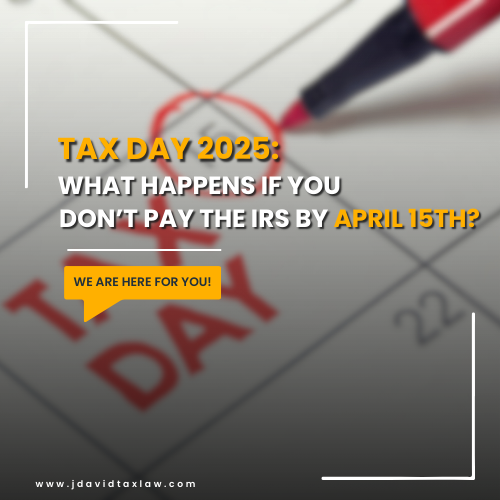Currently Not Collectible Status
Delay IRS collection actions due to financial hardship with IRS non collectible status, ensuring temporary relief.
Find Out If You Qualify for Tax Relief in 4 Easy Steps!
Check Your Eligibility For IRS Currently Not Collectable Status Today!
What is Currently Not Collectable Status?
Currently Not Collectible (CNC) status is an IRS designation indicating that a taxpayer is unable to pay their tax debts due to financial hardship. When granted CNC status, the IRS temporarily delays collection actions such as bank levies and wage garnishments, allowing the taxpayer to manage their financial situation.

Reliable Tax Service for Uncollectible Status IRS
Our firm is A+ Rated with the Better Business Bureau and has been recognized and awarded by many reputable businesses. If you’re struggling with tax debts and find yourself unable to pay, our IRS tax attorneys are experts in navigating the Currently Not Collectible (CNC) status. During your 100% free, confidential consultation, our tax debt attorney will thoroughly review your financial situation, including your income, essential living expenses, and overall financial status.
Affordable Tax Attorneys for CNC Application
• If you can’t pay your tax debt, our premier tax service can report your account as currently not collectible (CNC) to delay collection actions.
• We assist in completing Collection Information Statements (Form 433-F, Form 433-A, Form 433-B) as part of your CNC application to prove your financial status.
• Our tax attorneys will review your financial situation, including monthly income, expenses, and asset equity.
• We provide ongoing monitoring of your financial condition to maintain CNC status and prevent IRS collection actions.
• Our tax attorneys have over four decades of collective experience handling all IRS communications, securing temporary relief and managing outstanding tax debt effectively.
Guarantee acceptance of your IRS non collectible status by partnering with the best tax attorney, protecting your financial situation.
Strategically Delay IRS Collection Actions
Explore Alternative Payment Options
If attaining CNC status remains unfeasible, explore other payment arrangements with the IRS that might better suit your financial situation. Options include:
• The Installment Agreement allows you to manage your tax debt by making structured monthly payments over a period. To initiate this agreement, you need to fill out and submit IRS Form 9465, the Installment Agreement Request, which sets the terms based on your financial situation.
• The Offer in Compromise (OIC) provides an alternative where you can settle your tax liabilities for less than the total amount owed if you can prove that full payment would result in financial hardship. Applying for an OIC requires the submission of Form 656, Offer in Compromise. Alongside this form, you must provide a comprehensive financial statement using Form 433-A for individuals or Form 433-B for businesses, detailing your financial status to support your application.
Do you know the IRS might file a Notice of Federal Tax Lien during a temporary delay? Schedule your free consultation today to learn how to avoid filing a federal tax lien and protect your assets.
Click here to learn more about CNC Status and how it effects you.

How a Reliable Tax Service Simplifies Tax Debt

Initial Consultation
Our experienced tax attorneys examine your financial situation in detail, focusing on your income, expenses, and any existing tax liabilities.

Eligibility Evaluation
We assess your eligibility for CNC status by carefully comparing your financial situation against the IRS's criteria.

Detailed Preparation
Our tax specialist initiates the CNC application process by filling out complete IRS Form 433-F to gather comprehensive financial details from taxpayers.

Ongoing Support
After successfully obtaining non-collectible status with the IRS, J. David Tax Law is dedicated to provide continuous monitoring and support.

Initial Consultation
Our experienced tax attorneys examine your financial situation in detail, focusing on your income, expenses, and any existing tax liabilities.



Eligibility Evaluation
We assess your eligibility for CNC status by carefully comparing your financial situation against the IRS's criteria.

Detailed Preparation
Our tax specialist initiates the CNC application process by filling out complete IRS Form 433-F to gather comprehensive financial details from taxpayers.



Ongoing Support
After successfully obtaining non-collectible status with the IRS, J. David Tax Law is dedicated to provide continuous monitoring and support.

With a proven track record of achieving thousands of successful outcomes for our clients, our tax lawyers specialize in navigating the complexities of IRS negotiations.
Why Should You Choose a Professional Tax Service for CNC Status Assistance?
The Collectible status applications process requires detailed documentation and precise knowledge of what the IRS considers when reviewing CNC requests. Tax attorneys are well-versed in IRS procedures and can confidently manage the detailed aspects of tax regulations. Choosing a professional tax law firm for IRS non collectible status assistance combines expert legal guidance with deep IRS procedural knowledge.
This ensures thorough documentation and effective representation to establish your financial hardship. We offer relentless advocacy to protect you from IRS collection actions, such as tax garnishments and tax liens, and manage ongoing compliance and IRS reviews to maintain your CNC status.
Our comprehensive support shields your financial stability and provides peace of mind knowing you’re represented by a firm committed to achieving the best possible outcomes for your tax challenges.
Eligibility Requirements for CNC status
If you are still unsure if you qualify for a Currently Not Collectable Status contact our team at (888) 789-5011. We will be happy to assist, or we can help find other tax debt services we offer that better fit your specific situation.
Understanding the eligibility requirements for CNC status is crucial because the process is far from straightforward. With only 36% of applications accepted by the IRS, it’s clear that a careful, informed approach is necessary. At J. David Tax Law, we specialize in navigating these complexities to ensure your application stands the best chance of success. Here’s everything you need to know about the eligibility requirements to help us build the strongest possible case and avoid falling into the 64% of rejected CNC applicants:
Demonstrating Financial Hardship
Submitting Detailed Financial Statements
Providing Proof of Expenses
Ensuring Tax Compliance
Conducting Asset Evaluation
Understanding Periodic Reviews
What does CNC mean for the IRS?
How do I request a CNC application?
Can I still make payments on my taxes if I am in currently not collectible status?
How long does CNC status last?
CNC status is not permanent and can vary in duration. The IRS periodically reviews your financial situation to determine if your ability to pay has improved, typically every one to two years. Take advantage of our free tax consultation to protect your CNC status through upcoming IRS reviews.
How Can a Tax Attorney Near Me Help with CNC Status Applications?
How Can Your Tax Law Firm Assist with Long-Term Tax Planning and Compliance?
Our tax firm specializes in long-term tax planning and compliance, helping clients develop strategies to manage their taxes efficiently and avoid future tax liabilities. We offer comprehensive support to ensure you remain compliant with IRS rules and regulations over the long term. Learn how our firm’s process can optimize your tax planning.
Additional Resources

- Tax Debt
Tax Deadline Extension for California Wildfire Victims: IRS Relief and Penalty Help

- Tax Debt
Tax Day 2025: What Happens If You Don’t Pay the IRS by April 15

- Tax Litigation
Civil Tax Litigation vs. Criminal Tax Litigation: What You Need to Know

- Tax Litigation
Corporate Tax Litigation: Common Challenges and How to Overcome Them

- Tax Litigation
What a Tax Litigation Attorney Can Do for Businesses and Individuals

- Tax Debt
Penalty Abatement for Individuals vs. Businesses: Is Your Tax Strategy Right?


